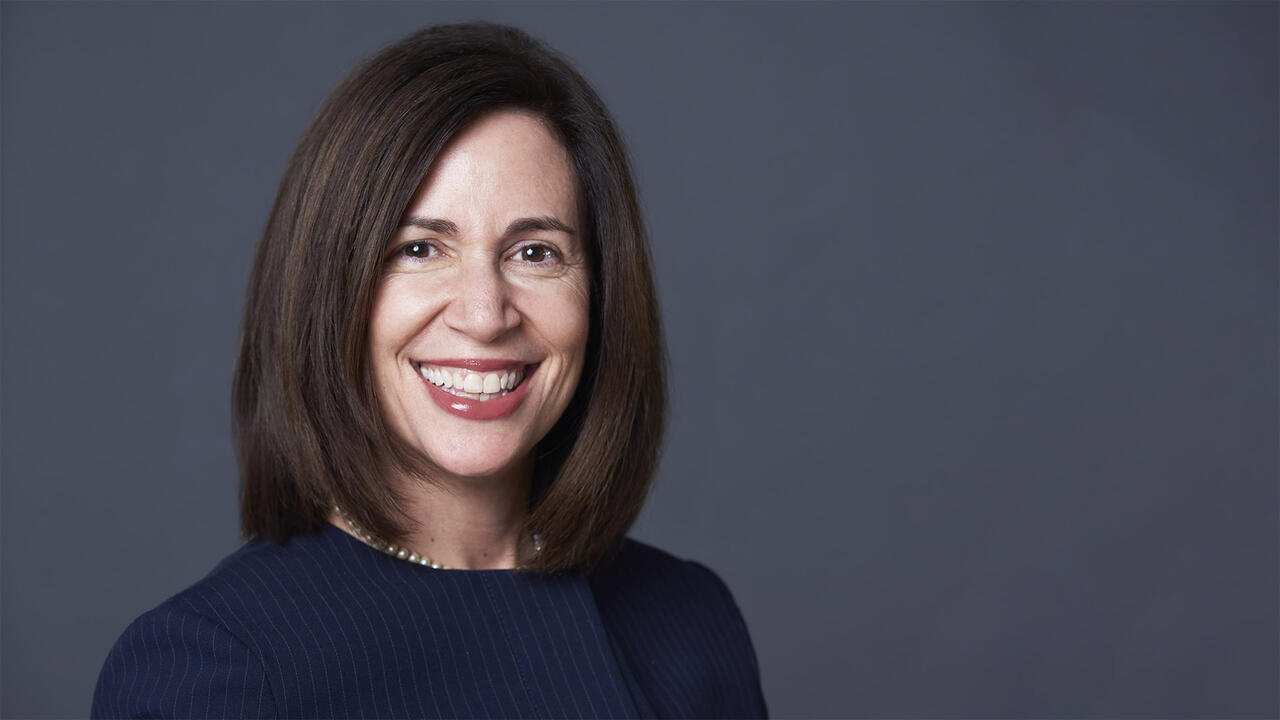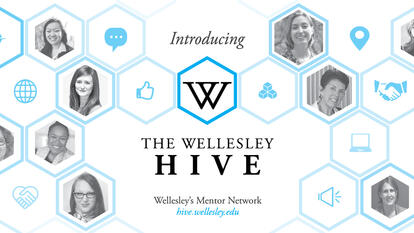
Alumnae Mentors Step Up to Help Wellesley Career Education Connect Students to New, Remote Opportunities
When the COVID-19 pandemic resulted in canceled internships, rescinded job offers, and delayed start dates for new jobs, Wellesley College Career Education faced an urgent task: Help students get to work.
Enter Susan Brennan, Wellesley’s new associate provost and executive director of Career Education. She started her job remotely on April 1, connecting with her team via Zoom, and they immediately activated Wellesley’s alumnae network—the strongest women’s network in the world. Hive 2020 was born.
“We need to meet students where they are,” said Brennan. “The pillars of Hive 2020—care, community, and career—combine for a holistic approach, and when students are ready to engage, opportunities will be there for them.”
First, Career Education surveyed the seniors; 70 percent of the class responded. The 325 students who expressed interest in an alumnae mentor have been matched, thanks to the record-setting 500-plus alumnae who signed up to help.
Next, Career Education developed Hive Internship Projects to get students to work despite the challenges of the economic downturn.
“We’ve put a stake in the ground on how important these experiential opportunities and relationships are. We don’t want to leave those experiences to chance because they will make a big difference to students in their long-term career success.”
Susan Brennan
These are short-term experiences created by alumnae, parents, and employers, who have divided the workload envisioned for long-term positions into individual projects that can be completed remotely. So far, more than 100 short-term projects are available to students.
On May 20, Career Education and the Wellesley College Alumnae Association launched the Hive Internship Project Challenge, an ambitious initiative to offer students meaningful work throughout the summer. The goal is to have over 300 projects by June 15.
Through these opportunities, students will gain meaningful work experience and use classroom knowledge in the real world, while organizations in a variety of fields—including marketing and design, scientific research, startups, and beyond—will receive timely support. Career Education is also developing a series of opportunities, called “pathways,” for goal setting, learning, and reflection that blend experiential learning and mentoring to promote the liberal arts and students’ professional development.
“We’ve put a stake in the ground on how important these experiential opportunities and relationships are,” Brennan said. “We don’t want to leave those experiences to chance because they will make a big difference to students in their long-term career success.”
Remote internships are free from many of the logistical issues that come with in-person experiences because students can work in their fields regardless of location and without incurring travel and housing expenses. “We love that a student could work for a Silicon Valley startup or a Singapore consulting firm remotely, without having to find housing,” Brennan said. “These virtual projects provide equitable access to opportunity for all students, making it possible for those who otherwise wouldn't have the resources to travel to have meaningful opportunities any time, anywhere.”

